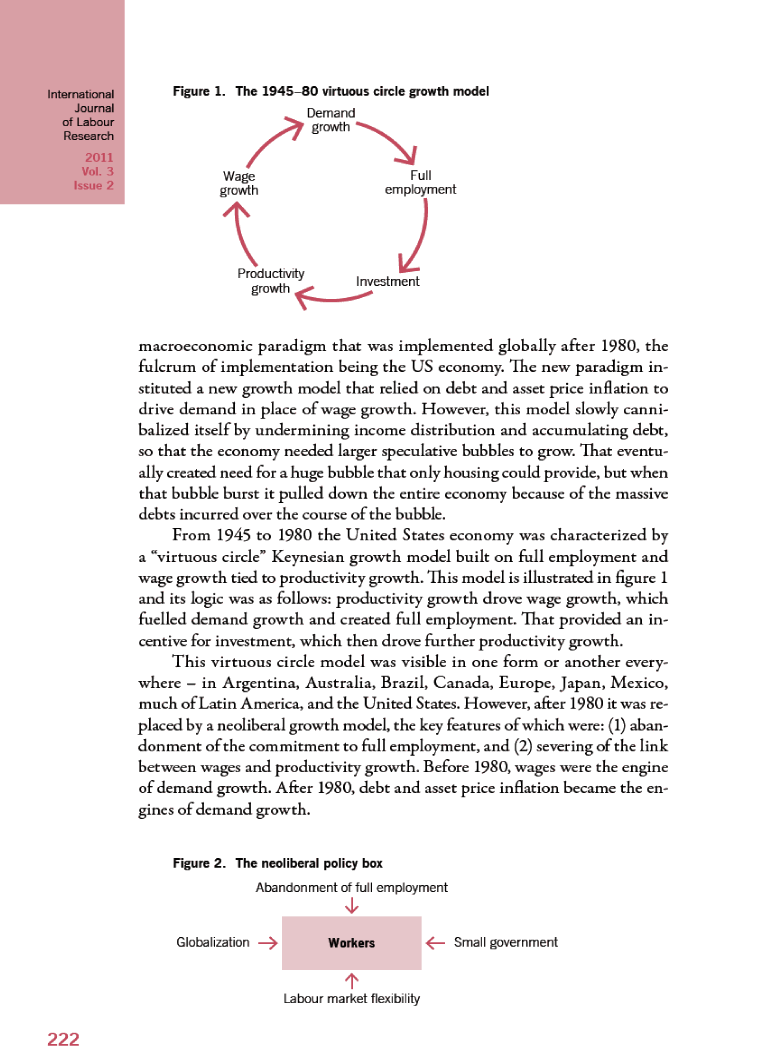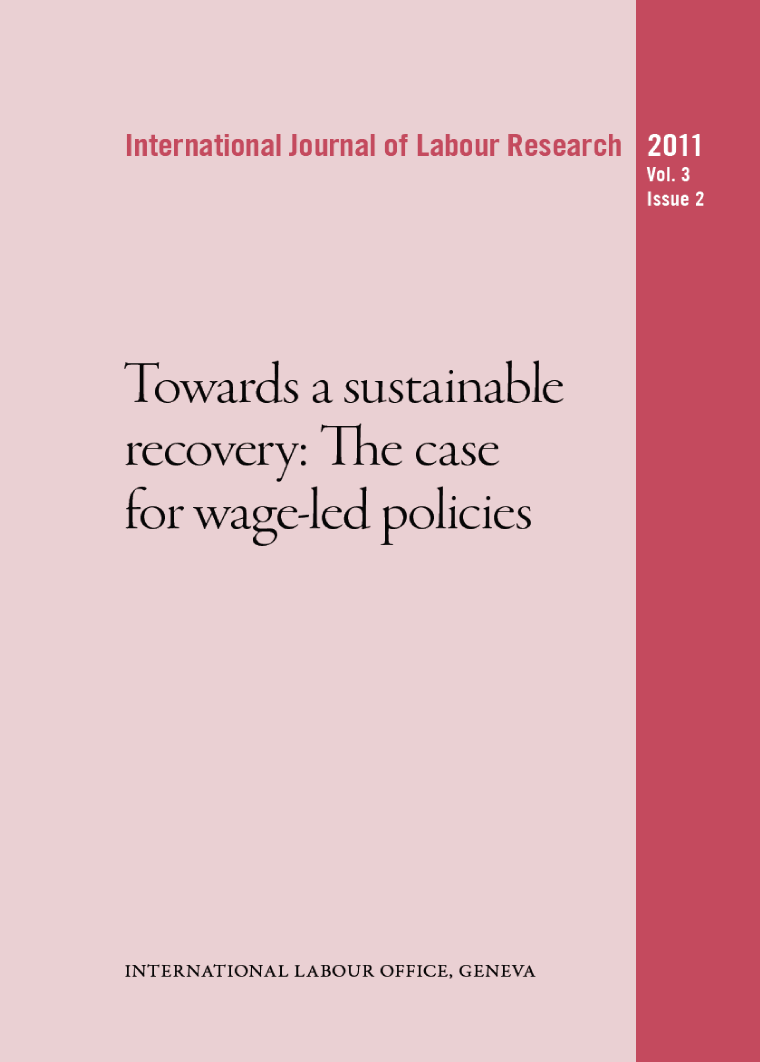ILO: Towards a sustainable recovery: The casE FOR WAGE-LED POLICIES
This issue of the International Journal of Labour Research addresses a central issue, if not the key issue for the labour movement: that of wages and what has happened to them over the past three decades.
Clearly, the combination of restrictive macroeconomic policies, trade liberalisation and the financialisation of corporate governance has drastically changed the landscape in which collective bargaining takes place. In the North “concession bargaining” has become a familiar concept, and in the South, the shift in the balance of power has meant that workers are not able to capture the hard-earned fruits of economic growth.
This new context, by weakening labour market regulation both de jure and de facto has profoundly eroded trade unions’ ability to connect improvements in standard of living to productivity gains. This has resulted not only in increased wage and income inequalities and higher incidence of low pay, but also in an increasingly dysfunctional macroeconomic picture.
One of the main findings is that wage-led growth economic s t rategies , far f rom undermining growth as is argued by mainstream economists, would, on the contrary, improve growth rates. This is an important argument as it directly contradicts the current “competitiveness” policy orientation in much of the world – an orientation based on permanent wage moderation. Clearly, such a recovery can only materialise if there is a global rebalancing of wages and productivity. This will not only require that trade unions intensify their efforts at the bargaining table and in pushing for better minimum wages, but that they fight to change the new global “rules of the game” that are diametrically set against them. In this area, as for others, collective action is a sine qua non condition to achieving any success
Download the full issue on wage-led policies:
Click here or on the picture to download the full pdf file.
Click here to download the french version of the ILO's wage-led issue in a pdf file.
|







